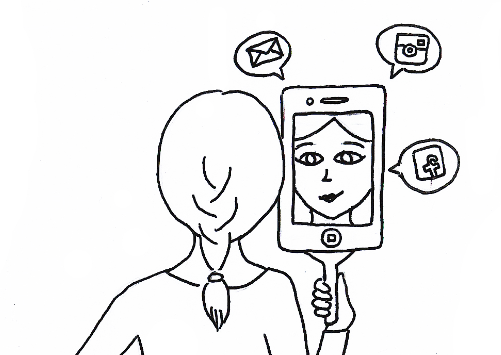Many associate my generation with its strong love of technology and apparent inability to pull itself away from a flashing screen. This is a misconception though. My generation does have an obsession, but it’s not with the screens themselves — it’s what’s on them.
When you see someone on their phone, they are checking Facebook, Instagram, email. We don’t have an obsession with technology, we have an obsession with ourselves. Smartphones and computers just make it easier to constantly check up on the latest in our lives.
Of course, technology, especially the Internet, has brought us amazing things. We have become connected with our world in ways that no generation before us has ever experienced, and we don’t have to look very far back in history to see it.
In late 2010, the Arab Spring took off in Tunisia and Egypt, propelled largely by social media and the Internet. According to Alex Scott an international relations graduate from SF State, the Internet and social networking played huge rolls in these uprisings, and served as a catalyst to the eventual crumbling of the Tunisian and Egyptian governments.
Earlier this month, Adel Iskandar, a professor at Georgetown University and author of “Egypt in Flux” spoke at SF State about his experience participating in and studying the Egyptian revolution and the Arab Spring. Shortly after those revolutions started, we had our own movement in the U.S. in 2011, under the Occupy Wall Street banner.
During the time of U.S. civil disobedience in Occupy Wall Street, many backed changing the national norm of corporate greed and wealth inequality. The Occupy movement fizzled out in the U.S., but the revolution in Egypt continued until the Egyptian government was successfully changed.
As a room of about 100 students sat and listened to step-by-step instructions on civil disobedience, Iskandar spoke to a sea of backwards laptop screens and an audience submerged in Facebook, drowning in selfishness.
It’s not hard to see how we became this way. We all grew up being “special” and being “the best.” We were constantly being awarded for mediocre athletic accomplishments, less than impressive academic achievements, and a work ethic that would make our grandparents sick.
According to a study of millenials from the PEW Research Center, we are less likely to be employed by any given age than the previous generations before us. We are also more likely to still be living with our parents by the time we become adults.
We suffer from an addiction to shiny things. Our parents stuck us in front of lit screens as children, to absolve themselves from the responsibility of asking about or days or telling us about the birds and the bees.
One argument against cellphones is correct though: The idea that they increase our connections with the world around us, however, they also destroy the personal relationships we write off in exchange for text messages and Facebook pokes.
Eventually, the only faces we will see are those illuminated by an LED screen, and the only voice we will hear is our own, echoing in our head: “I am beautiful. I am awesome. I am special.”





